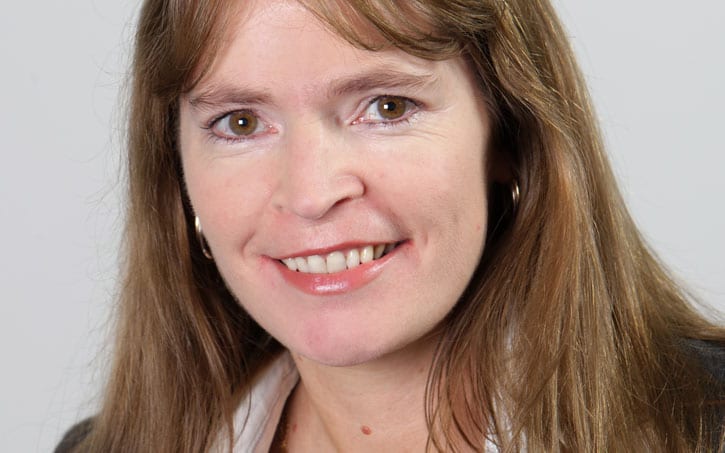There’s a big difference between where Vicki Carter thought her career would end up, and where it is today. Having studied Social Sciences at University, she hadn’t contemplated a career in the financial services industry. Instead, Carter planned to pursue social work. “I’ve always wanted to make a difference,” she says. And she is, but not in the industry she expected.
She “fell” into and stayed in financial services because of her drive to improve people’s lives. “Financial health gives so much liberation to the choices that people make in their lives,” Carter explains. “I learnt very early on in my insurance career that it can help families when they most need it. I have never felt it was about banking. It’s more about creating financial health and enabling choice, she adds.
Carter has now been working in the finance industry for over 25 years, with the past 14 at NAB. She is currently Executive General Manager, NAB Retail, describing her current role as a highlight of her career. Flexibility, inclusion and leadership are the features Carter values most from NAB, adding that it’s also a great learning environment. “The variety that I’ve been offered has been terrific. I’ve been able to foster my intellectual curiosity and the culture accords with my personal values.”
One of the biggest challenges in Carter’s career came early on when she was thrown into an area in which she had no experience. As the only female Business Development Manager in a national insurance company, Carter learnt to set aside her gender and age, and lead with credibility. “I was not only a woman but I was young,” she says. “That was a really challenging time but it was also a pivotal time in developing my self-belief.”
This self-belief has enabled her career to flourish and she credits her parents with sowing the seed. “I was raised by a working class family and our ethos was everyone is equal on a deeply human level. I’ve never been a hierarchical person. Everyone deserves respect and attention.”
When Carter started to lead large projects she learnt another valuable lesson: enabling outcomes through others. “I’ve never seen not knowing as a failure, rather as an opportunity to amalgamate a group of people that can collaboratively get things done.”
She also believes her success is, in part, due to the teams she has developed. “My success has always been through the teams that I have selected,” Carter explains. “Invariably they have been teams that have led to my success and conversely I hope I’ve contributed to their success.”
Good leadership is critical to staying motivated and achieving goals, Carter emphasises. “If you look at any research around how people are feeling and how engaged they are, a large component will be down to their leader.” Describing her leadership style as inclusive and consultative, Carter also places a high value on coaching. “I have a strong coaching ethos that’s pervasive in the teams I lead,” Carer explains. “The possibilities are endless when you unleash the capabilities of a group of individuals.”
Carter draws inspiration from a number of sources but cites Lisa Gray, NAB Group Executive, Enterprise Services and Transformation, as an active sponsor of her career. “I believe that some of the opportunities I have had, I wouldn’t have had without her taking a punt on me,” she says. There’s a difference between having a sponsor and a mentor, Carter points out. “It is a hand up rather than a hand out. A sponsor will actually advocate for you – they will speak on your behalf and believe in you.” You need to honour that through delivery.
Carter would like to see more women leverage networks and connections and take chances. “If you put yourself out there and try things that you’re not comfortable doing, and you make a success of it, it becomes self-propelling.” Carter has recently become a Member of Chief Executive Women of Australia (CEW), which represents Australia’s most senior women leaders. “I love what it stands for – the support and sponsorship of women in corporate Australia.”
Career management is especially important for women because they often will take time out from the workforce, Carter says. “There are times when you’re more heavily invested in work, and other times you’re more heavily invested in life outside of work, she says. Nowadays, Carter guards her weekends fiercely. “There were earlier times in my career where I fell into a trap of working out of hours but now I feel you need to step away in order to be your most productive.” A voracious reader, foodie, and a passionate Collingwood fan, she also enjoys living close to the beach, and finds the close proximity to water rejuvenating. Asked what her biggest dream for 2014 is and she is quick to reply: “Collingwood winning a flag!”
Carter is results-oriented. “I like to have a lot of fun and learning along the way but it has to land somewhere,” she says. “I have the view that if you acquire knowledge and you don’t apply it it’s just indulgent.” But while results are important to her, she is able to see the funny side of things even in stressful times. “I manage pressure through having perspective and being able to laugh at things along the way.”


